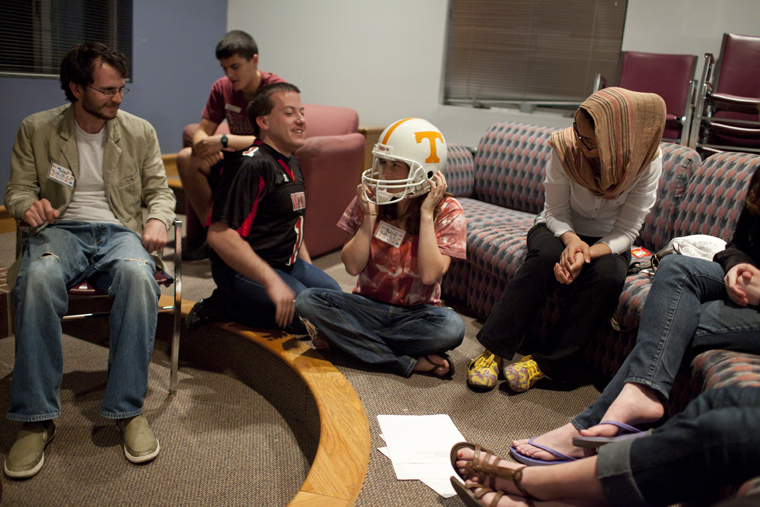Breaking the Barrier: International students can learn English through conversation
April 19, 2011
When senior Kana Okabe came from Aomori, Japan, to WKU in 2006, she didn’t know much English other than “yes” and “no.” Although she felt welcomed, she also felt ashamed while speaking to Americans because of her limited English knowledge.
Becoming part of the Baptist Campus Ministry’s conversational English program boosted her confidence and comfort level.
Throughout the year BCM offers international students the chance to improve their English speaking skills and help them adjust to American culture through activities and discussions.
Each Wednesday, BCM members and students and Bowling Green residents interested in the program meet at 7:30 p.m. at the BCM building on 1574 Normal Drive.
Kathryn Crimm, conversational English coordinator for BCM, said participants gain a comfort level in American society through the long-term friends they meet and build confidence in speaking English.
“It’s just kind of been a really integral part of our international student ministry, because it’s set up to be a warm and inviting place for international students to come and meet American students and for American students to meet international students as well,” she said. “Everybody can learn about everybody’s culture and practice language skills in a safe, homey environment.”
Crimm said the program has been educating multiple nationalities, including Chinese, Korean, Vietnamese and Indian, for about six years.
“One of the hardest points of learning a language is getting the confidence to speak,” Crimm said. “That’s kind of what our function is.”
There are some students who speak English well and others who barely speak any, she said.
Okabe said she was scared when the BCM invited her to the program, because she didn’t know anything about it, and she’s not a Christian.
“At the conversation club they don’t push Christianity, they really respect you as a person, not as a different religion,” she said.
Although the group doesn’t directly talk about their Christian faith, if Christian topics and questions come up the group will discuss them, Crimm said.
“We care about international students and where they come from and what they believe,” she said. “I personally want to know what they believe and learn about their faith. I find it fascinating.”
Will Whobrey, language partners coordinator for BCM, said he helps introduce international students to other international and American students.
“Basically we pair international students and American students together to help practice English, build friendships and meet whatever kind of needs international students need,” he said.
Whobrey and Crimm said the participants’ discussions and activities include comparing American culture with other cultures in areas such as sports and dance. For example, during last week’s session, international students were taught about football and had their first experience putting on a football helmet.
Prachi Chavan, a graduate student from Mumbai, India, said she learned English throughout her schooling in India, so she’s comfortable speaking English in everyday life.
“It’s really nice to meet them,” she said. “It’s just once a week that we meet, and I feel very comfortable and I don’t think anyone who comes there feels uncomfortable.”
Anyone can join the program, Crimm said.
“The only prerequisite is an interest in getting to know people,” she said.
Crimm and Whobrey said that in previous semesters 15 to 20 international students would attend on average, but this semester they’ve seen a drop in attendance.
“This semester has been a little different,” Crimm said. “We have a lot of American students that come, and we have very few international students that come. From week to week we have three to five international students coming.”
Both Crimm and Whobrey said they don’t know exactly why attendance has dropped, but even if one or two people attended, they would still continue with the program.

























